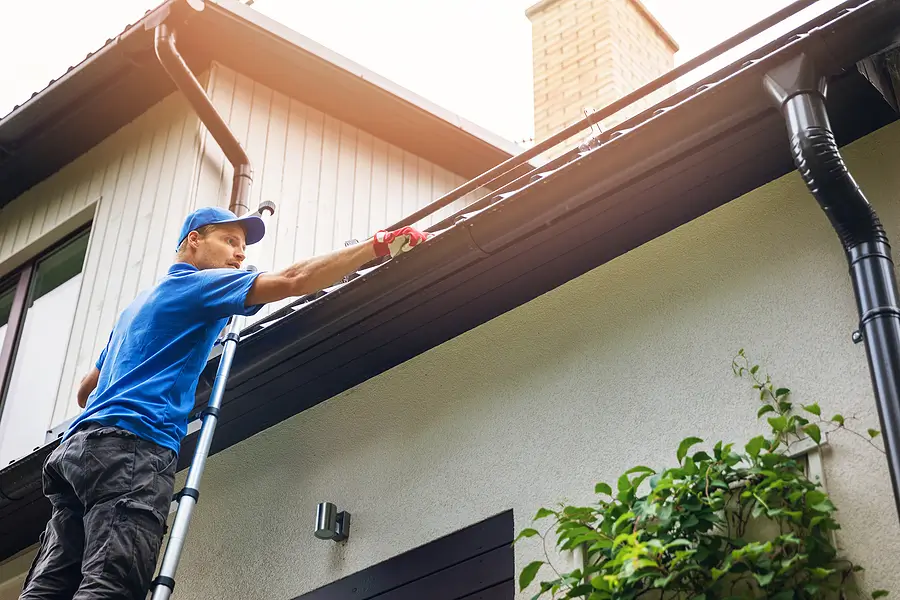Owning rental property in College Station comes with its fair share of responsibilities. One of the most crucial aspects of the property management industry is handling maintenance requests efficiently and effectively. Addressing maintenance concerns in a timely manner helps protect your investment, keeps tenants satisfied, and ensures compliance with local laws.
In this guide, we’ll explore how to handle maintenance requests in College Station rentals, balancing landlord repair responsibilities with tenant needs while optimizing costs and efficiency.
Understanding Landlord and Tenant Responsibilities
A clear understanding of respective responsibilities is essential for managing maintenance requests. A well-defined lease agreement should outline the responsibilities of landlords and tenants regarding maintenance and repairs.
Landlord Responsibilities
Landlords are generally responsible for maintaining the structural integrity of the rental unit, including:
- Plumbing systems (fixing leaks, clogs, and broken pipes)
- Electrical systems (exposed wires, faulty circuits, and power outages)
- Heating and cooling systems (ensuring HVAC systems are in good working condition)
- Structural damage (cracks, mold, pest infestations, and deteriorating foundations)
- Appliances provided by the landlord (stoves, refrigerators, and other essential appliances)
- Emergency situations (gas leaks, water damage, and fire hazards)
Landlords must complete repairs quickly and ensure a safe and habitable living space. Failure to do so may result in tenants withholding rent, filing legal action, or terminating their lease.
Tenant Responsibilities
Tenants also play a role in maintaining a rental unit. They are responsible for:
- Reporting maintenance issues promptly
- Keeping the rental space clean and free from pests
- Performing minor repairs, such as replacing light bulbs and unclogging drains
- Preventing unnecessary damage by using appliances and fixtures properly
- Following the lease agreement guidelines for maintenance requests
By fulfilling their obligations, tenants help landlords manage rental property more effectively and avoid costly repairs caused by neglect.
Reporting and Documenting Maintenance Issues
Promptly reporting and documenting maintenance issues ensures a smooth resolution process. Clear communication between landlords and tenants minimizes disputes and ensures all parties are on the same page.
Documenting the Issue
Tenants should provide detailed records of maintenance concerns, including:
- Photos and videos of the issue
- A written description outlining the problem
- The date the issue was first noticed
Having this documentation helps landlords assess the severity of the problem and determine the necessary repairs.
Notifying the Landlord
Tenants should use the preferred communication method specified in the lease agreement. Whether through phone calls, emails, or an online portal, timely communication is key to efficiently resolving repair issues. Property managers should acknowledge maintenance requests promptly and provide tenants with an estimated timeframe for resolution.
Prioritizing and Addressing Maintenance Requests
Not all maintenance requests require immediate attention. Landlords and property managers must establish a system for prioritizing repairs based on urgency and potential risks to tenant safety.
Emergency Repairs (Immediate Attention Required)
Certain maintenance issues pose immediate threats to health and safety, requiring urgent intervention. These include:
- Gas leaks
- Burst pipes and flooding
- Electrical hazards (exposed wiring, power outages)
- Fire damage
- Structural damage compromising habitability
Landlords must respond immediately to emergencies and coordinate repairs with trusted contractors to prevent further damage and ensure tenant safety.
Routine and Non-Urgent Repairs
Issues such as minor plumbing leaks, appliance malfunctions, or cosmetic damages are considered non-urgent repairs. However, they should still be addressed within a reasonable timeframe to maintain tenant satisfaction and avoid costly issues later.
Using Property Management Software for Efficiency
Many landlords and property management companies use property management software to track maintenance requests, schedule repairs, and manage expenses. This technology streamlines communication, ensures transparency, and keeps tenants informed about the status of their requests. By utilizing an online portal, landlords can reduce the risk of overlooked maintenance concerns and improve response times.
Hiring Reliable Contractors for Maintenance and Repairs
While some landlords may handle minor repairs themselves, it’s crucial to hire professional contractors for more complex maintenance issues. Hiring licensed and insured professionals ensures:
- Compliance with state laws and local building codes
- High-quality workmanship and long-lasting repairs
- Reduced liability risks for landlords
Property managers should establish relationships with trusted contractors who can respond to maintenance requests on time. This proactive approach helps landlords avoid costly repairs resulting from poor workmanship.
Budgeting for Maintenance Costs
Setting aside a portion of rental income for maintenance and repairs is essential for long-term property management success. Regular inspections and preventive maintenance help reduce unexpected expenses and prolong the longevity of rental units.
Planning for Routine Maintenance
Routine maintenance helps prevent minor issues from escalating into major problems. Property owners should conduct regular inspections to assess the condition of:
- Plumbing and electrical systems
- HVAC systems
- Roofing and structural components
- Common maintenance requests such as paint touch-ups, pest control, and appliance servicing
Proactive maintenance planning ensures that rental properties remain in good working condition and reduces the risk of tenant dissatisfaction.
Maintaining a Positive Landlord-Tenant Relationship
Effective communication is the cornerstone of successful property management. Landlords should keep tenants informed about maintenance progress and expected repair timelines. A respectful and professional approach to handling maintenance concerns fosters tenant trust and encourages lease renewals.
Best Practices for Communication
- Respond promptly to maintenance requests and provide estimated repair timelines
- Keep tenants updated on repair progress
- Clearly outline respective responsibilities in the lease agreement
- Use polite and professional language in all interactions
A strong landlord-tenant relationship minimizes disputes, improves tenant retention, and contributes to a more profitable rental property business.
Partner with a Professional Property Management Company
Handling maintenance requests in College Station rentals can be a challenging yet rewarding aspect of property management. By proactively addressing maintenance issues, maintaining effective communication, and hiring reliable contractors, landlords can ensure tenant satisfaction and protect their investments.
If you own multiple rental properties or find property maintenance overwhelming, partnering with a professional property management company can provide invaluable support. At Blue Ribbon Property Management, we specialize in managing maintenance concerns, tenant relations, and rent collection, ensuring your rental properties operate smoothly.
To learn more about our services and how we can assist you, contact us today. Let us help you effectively manage your rental property, reduce repair costs, and maintain a positive landlord-tenant relationship.




